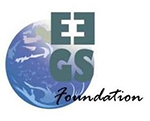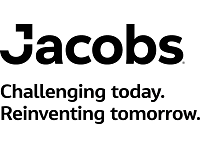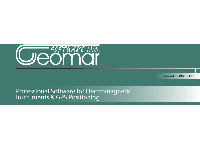- Home
- About Us
- GAINS
- News/TAG Webinars
- Membership
- Annual Meeting/SAGEEP
- SAGEEP 2026
- SAGEEP 2025
- SAGEEP 2025-Munitions Response Meeting Abstracts/Sessions
- SAGEEP 2025-MRM Exhibiting/Sponsorship Opportunities
- SAGEEP 2025-MRM Accommodations
- SAGEEP 2025-MRM Registration Information
- SAGEEP 2025-MRM Program
- SAGEEP 2025-Munitions Response Meeting Short Courses
- SAGEEP 2025/MRM Luncheons/Conference Events/Activities
- SAGEEP 2024
- SAGEEP 2023
- SAGEEP 2022
- SAGEEP 2021
- SAGEEP 2020 Exhibiting/Sponsorship
- SAGEEP-2019
- SAGEEP 2019 Exhibiting/Sponsorship
- SAGEEP 2018
- SAGEEP 2017
- SAGEEP 2016
- SAGEEP 2015
- Proceedings SAGEEP 2024
- Proceedings SAGEEP 2023
- Proceedings SAGEEP 2022
- Proceedings SAGEEP 2018
- Proceedings SAGEEP 2025
- Publications & Merchandise
EEGS' Anti-harassment Policy for SAGEEP Meetings and Activities (Revised June, 2022)Statement of PolicyThe Environmental and Engineering Geophysical Society (EEGS) Board at its 2017 annual meeting voted to adopt the American Geophysical Union’s Code of Conduct. The adoption of the Code of Conduct establishes an anti-harassment policy for the SAGEEP meeting and EEGS associated activities. It is the policy of EEGS that all participants enjoy an environment free from discrimination, harassment, and retaliation. EEGS is committed to providing an atmosphere that encourages the free expression and exchange of scientific ideas. In pursuit of that ideal, EEGS is dedicated to the philosophy of equality of opportunity and treatment for all members, regardless of gender, gender identity or expression, race, color, national or ethnic origin, religion or religious belief, age, marital status, sexual orientation, disabilities, veteran status, or any other reason not related to scientific merit. Violators of this policy will be subject to discipline. Definition of Sexual Harassment Sexual harassment refers to unwelcome sexual advances, requests for sexual favors, and other verbal or physical conduct of a sexual nature. Behavior and language that are welcome/acceptable to one person may be unwelcome/offensive to another. Consequently, individuals must use discretion to ensure that their words and actions communicate respect for others. This is especially important for those in positions of authority since individuals with lower rank or status may be reluctant to express their objections or discomfort regarding unwelcome behavior. Sexual harassment does not refer to occasional compliments of a socially acceptable nature. It refers to behavior that is not welcome, is personally offensive, debilitates morale, and therefore, interferes with work effectiveness and social interaction. The following are examples of behavior that, when unwelcome, may constitute sexual harassment: sexual flirtations, advances, or propositions; verbal comments or physical actions of a sexual nature; sexually degrading words used to describe an individual; a display of sexually suggestive objects or pictures; sexually explicit jokes; unnecessary touching or touching that is known to the alleged harasser to be culturally unacceptable. Definition of Other Harassment Harassment on the basis of any other protected characteristic is also strictly prohibited. This conduct includes, but is not limited to the following: epithets, slurs, or negative stereotyping; threatening, intimidating, or hostile acts; denigrating jokes and display or circulation of written or graphic material that denigrates or shows hostility or aversion toward a particular group or an individual based on inclusion in a particular group. As part of the adopted Code of Conduct, the following definitions of Expected and Unacceptable Behavior are provided: Expected Behavior
Unacceptable Behavior
Scope of Policy This policy applies to all attendees at SAGEEP and EEGS associated activities, including scientists, students, guests, staff, contractors, and exhibitors, participating in the scientific sessions, tours, and social events. This policy for anti-harassment associated with the SAGEEP conference does not preclude contacting local law enforcement for any flagrant illegal acts of violence and/or physical assault. Reporting an Incident Any individual covered by this policy who believes that they have been subject to harassment should contact any of the EEGS Board members, email [email protected], or provide information in writing on the Harassment Complaint Form that can be downloaded and printed or found at the SAGEEP Registration Desk. The complainant is not required or expected to discuss the concern with the alleged offender. All complaints will be treated seriously and investigated promptly. Confidentiality will be honored to the extent permitted as long as the rights of others are not compromised. Note: in the case of a virtual EEGS event, EEGS Board Members and EEGS Staff will take steps to mitigate the issue anonymously at time of incident. Therefore, individuals are encouraged (though not obligated) to report the issue in real time via private message to event hosts. The host or host team will be identified at the beginning of the virtual event. Offending persons will first be asked to voluntarily leave the virtual event and if they do not comply, will be removed by a virtual event host. The Investigation Upon receipt of a written and signed complaint, the EEGS Board will select an impartial investigator, usually a Society Officer or Board member. Any person with a real or perceived conflict of interest may not serve as an investigator. If a criminal or civil case is pending or under investigation by law enforcement regarding the alleged incident, no action will be taken by EEGS until the case is resolved. The investigation, if deemed warranted, will proceed as follows:
Retaliation Is Prohibited EEGS will not tolerate any form of retaliation against persons who file a complaint, serve as witnesses, or otherwise assist in the investigation. Retaliation is a serious violation of this policy and, like harassment or discrimination itself, may be subject to disciplinary action. Disciplinary Action Individuals engaging in behavior prohibited by this policy as well as those making allegations of harassment in bad faith will be subject to disciplinary action. Such actions range from a verbal warning to ejection from the meeting or activity in question without refund of registration fees and revocation of their membership. Repeat offenders may be subject to further disciplinary action, such as being banned from participating in future SAGEEP or affiliated society meetings or other activities. Questions Any questions regarding this policy should be directed to the EEGS board at [email protected]. |





















